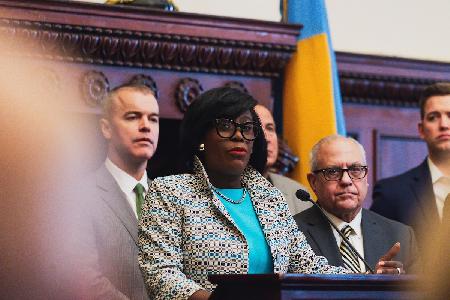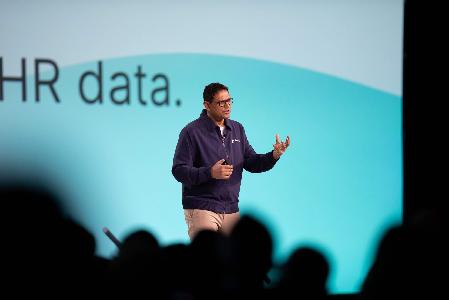At the end of 2022, Philadelphia founders started seeing the effects of a slowed-down, lower-valuations market.
After local founders raised billions in the first half of the year, Q4 saw pre-pandemic levels of venture capital raised by Philadelphia companies with $597.3 million raised across 108 deals, according to data released by PitchBook and the National Venture Capital Association. And in the first quarter of 2023, that trend continued with $559.7 million raised across 84 deals, per the organizations’ newest Venture Monitor report.
It’s quite a different place than where we were this time last year. In Q1 of 2022, Philly area companies raised $1.37 billion, and then in Q2, $2.66 billion.
The sharp drop happened nationally, not just in Philadelphia. Since Q3 of 2022, national VC dollars have been on a steady decline, though they do roughly match how much was invested before the boom in 2021. Pitchbook and NVCA’s report called out a few reasons why this is the case:
“Continued instability abroad, stubborn inflation rates and several high-profile bank failures contrasted with a bevy of positive macroeconomic indicators spread a plume of anxiety across the markets,” the report said in its intro. (One of those bank failures, of course, was Silicon Valley Bank, which counted about half the country’s venture-backed tech and healthcare companies among its clients.) “Finance — especially VC — is fundamentally prospective, and when the invisible hand that writes the rules of the market is revising them without warning, investors tend to reduce their activity until they can see at least a rough draft.”
Though this quarter saw lower dollars invested than last year, Philly still saw some notable deals. Philly’s ArriVent Biopharma raised a $155 million Series B and Palvella Therapeutics, a Berwyn-based late clinical stage biopharma company, recently closed a $37.7 million Series D. The Venture Monitor showed that Malvern-based Venatorx Pharmaceuticals raised $15 million, medical device startup Early Bird Medical raised $13 million and Wayne-based Cornelis Networks raised $13 million. None of these three companies immediately responded to Technical.ly’s request for comment.
(As we often see in these quarterly reports, the data is not complete, or contains some inaccuracies. For instance, the Venture Monitor lists the second-highest raise for a Philly-area company as Tawkify’s $50 million Series B. Yet the company appears to be headquartered in San Francisco and merely incorporated in Wilmington.)
Emily Foote, a partner at Osage Venture Partners, told Technical.ly that the numbers in the report reflect what she’s seeing with the firm’s internal investing. Investors have “pulled back” and are holding reserves to extend their investment period during this uncertain time, and new investments were cut in half in the last year, she said.
Foote added that the Series B round is the most challenging for founders and investors alike right now.
“The market hasn’t determined the prices for Series B companies and startups who raised Series As in the last 18 months raised the biggest Series As seen since 2000,” she said in an email. “Thus, they don’t have a strong need to raise again when they have runway and valuations might be lower.”
Although its more challenging to invest right now, it doesn’t mean deals aren’t happening. Economic downturns can be good times to invest, according to Foote: Companies tend to cut costs during these periods which can grow to greater efficiency and new business models. That can set them up well for when the economy is strong again.
“While short term outlook may be uncertain, history has shown that economics tend to recover over the long term,” she said. “By investing in strong businesses and leadership teams with a sustainable business model, investors can benefit from growth over the long term.”
Foote predicts that this period will produce “wartime leaders” — founders who are strategic thinkers, who are agile and resilient, and “will be able to inspire and motivate their teams to work together towards a common goal and be willing to take risks to achieve it.”
Join the conversation!
Find news, events, jobs and people who share your interests on Technical.ly's open community Slack

Philly’s IT department fires long-tenured staff amid a high-level shakeup of priorities

Why is it so hard to find entry-level software engineering jobs?

Is AI really something new — or just the next big technology platform?


